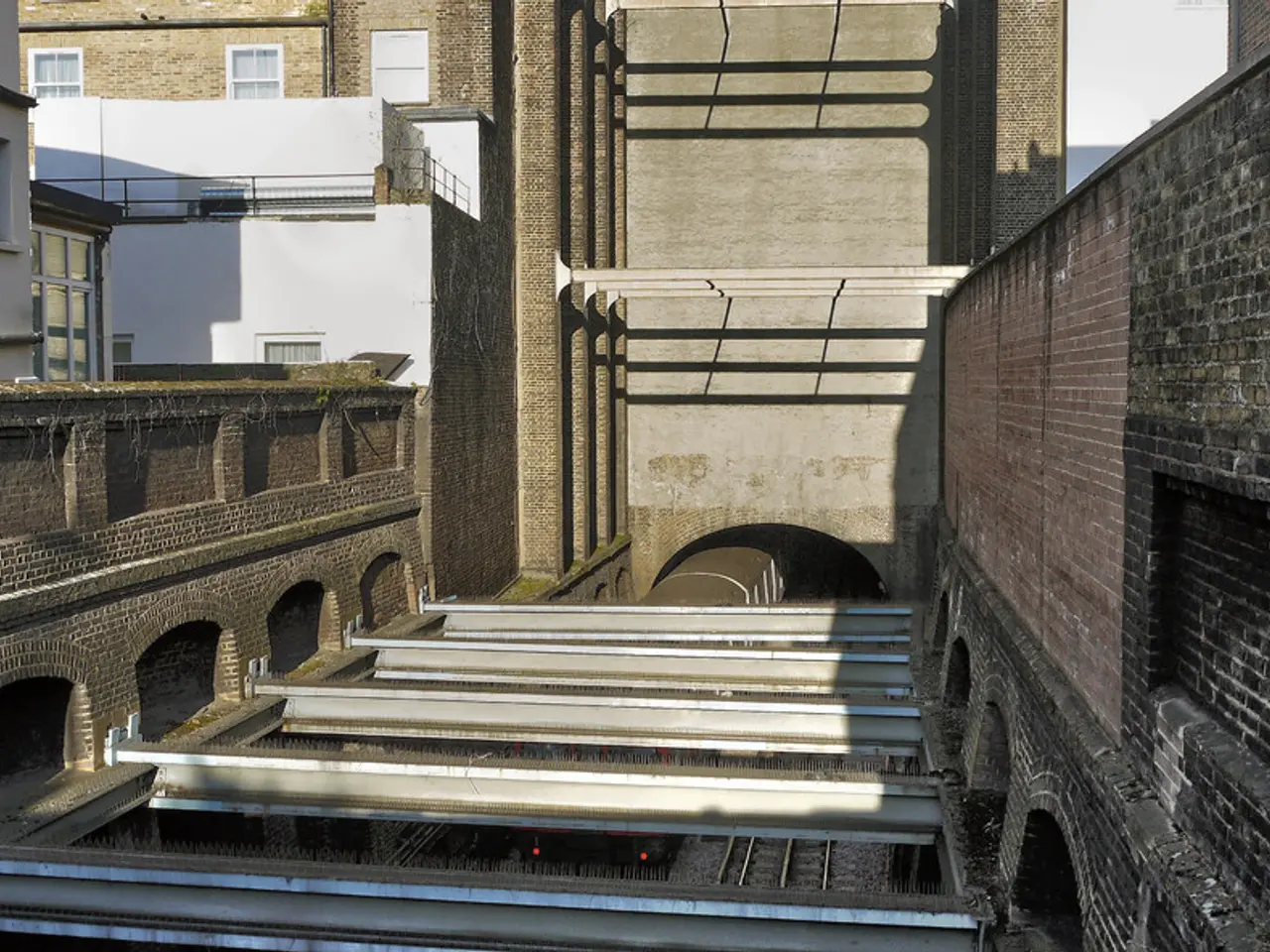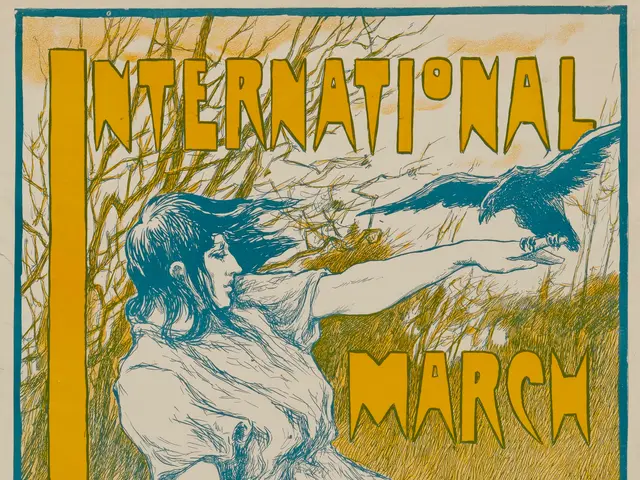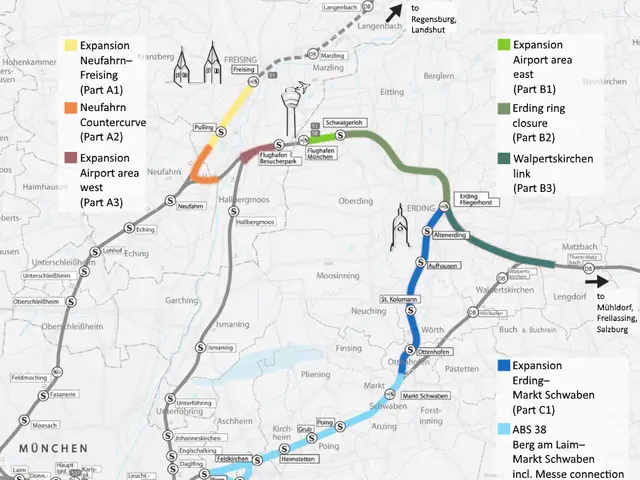Tightened border controls over the past three months in Germany: Results and Impact
In recent news, stricter border controls have been implemented in Germany, with the federal police taking on an increased workload. However, contrary to some concerns, there is no direct evidence from the latest available sources that these stricter border controls have caused staffing shortages at airports and train stations.
The Interior Ministry has confirmed that the federal police will fulfill their legally assigned tasks, with around a third of the total federal police force being deployed at the borders. This increase, from 11,000 to 14,000 officers per day, was implemented when the stricter controls began.
Despite the increased workload, the Ministry of the Interior has kept the number of officers at airports and train stations secret for "tactical reasons." The federal police have been under pressure, with reports of accumulated overtime reaching 2.9 million hours by June 30. Leave to reduce overtime is being granted only on a restrictive basis.
Operational challenges and staff-related disruptions in German transportation hubs are currently attributed to strikes, equipment issues, or air-traffic management rather than stricter border controls. Reports of staff shortages and strike-related cancellations affecting train services in Germany and the UK are linked to industrial actions or operational problems, not border control policies.
The current German Interior Minister is Dobrindt, and according to the GdP, staffing levels are "almost identical" to last year. Some departments have changed their duty rosters and are "largely foregoing training and further education" due to the increased workload at the borders.
While staffing shortages are possible due to the increased workload at train stations, there are no specific reports linking these shortages to stricter border controls. In fact, the number of people turned away at the borders between May 8 and July 31 was approximately 770 per week, with most rejections occurring at the border with France, followed by Poland, Switzerland, Austria, the Netherlands, the Czech Republic, Luxembourg, Belgium, and Denmark.
Moreover, concerns about rising crime at train stations and increasing violence among traveling soccer fans have been raised by union representative Roßkopf. These issues, however, are not directly linked to stricter border controls.
In summary, while there are operational challenges and staff-related disruptions in German transportation hubs, these are currently attributed to strikes, equipment issues, or air-traffic management rather than stricter border controls. The impact of stricter border controls on staffing shortages at airports or stations has not been specifically documented in the available recent sources.
- The current discussions in German politics and general-news are revolving around the impact of stricter border controls on the federal police, especially concerning staffing levels at airports and train stations.
- Outside of the border control debates, there are concerns in crime-and-justice topics regarding rising crime at train stations and increasing violence among traveling soccer fans, which are not directly linked to stricter border controls.








